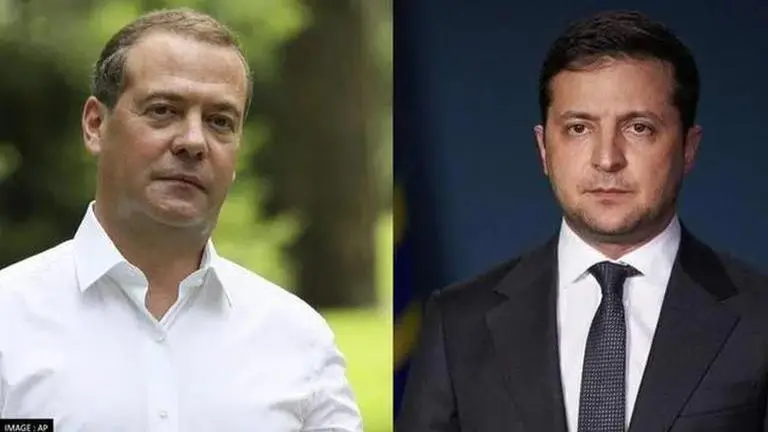Updated 8 February 2023 at 15:25 IST
Ukraine denies Medvedev's claim that it is seeking a 'two Korea-like scenario'
Oleksiy Danilov, who is secretary of Ukraine's National Security and Defense Council, said that Dmitry Medvedev's claims were untrue.
- World News
- 3 min read

A Ukrainian official has refuted claims made by Dmitry Medvedev, the former Russian President and current Deputy Chairman of the Security Council, that Ukraine is aiming to split itself into two countries similar to North and South Korea.
Medvedev stated in a post on his Telegram channel that Ukraine appeared to be considering a proposal from Western countries to divide the country in the same manner as the Korean peninsula, one belonging to Ukraine and one becoming a part of Russia. However, according to a report from Newsweek, Medvedev also dismissed this idea as "just wishful thinking" by Ukraine and stated that it would not be feasible. It isn't exactly clear what Medvedev was advocating. His statement does not clarify if he is in favour of such an outcome or against it.
Oleksiy Danilov, who is secretary of Ukraine's National Security and Defense Council, said that Medvedev's claims were false. "Ukraine is not Korea. There will be no 38s and other parallels, other people's stories and scenarios imposed from the outside," he said.
Head of Ukraine's Main Intelligence Directorate, Kyrylo Budanov, had said last March that Russia might try to impose a Korea-like scenario on Ukraine. Vladimir Putin 'will try to impose a dividing line between the unoccupied and occupied regions of our country. In fact, this is an attempt to create North and South Korea in Ukraine. After all, he is definitely not able to 'swallow up' the whole state,' Budanov had said, as per a report in Ukrainian Pravda cited by Newsweek.
"The occupiers will try to unite the occupied territories into a single quasi-state entity that will oppose independent Ukraine," he added.
What led to the division of Korean peninsula?
After World War II, the Soviet Union and the United States agreed to temporarily occupy the Korean peninsula and oversee its transition to independence. This resulted in the creation of two separate governments, each claiming to be the legitimate government of all of Korea. In the north, a communist government was established under Soviet-backed leader Kim Il-sung. In the south, a democratic government was established under US-backed leader Syngman Rhee. Tensions between the two Koreas grew as each side attempted to reunify the peninsula under its own rule, leading to the outbreak of the Korean War in 1950.
Advertisement
The war ended in 1953 with a ceasefire, but no peace treaty was ever signed, and the two Koreas remained officially at war. Over time, the two Koreas developed into vastly different societies, with the North becoming a socialist state and the South becoming a market-oriented democracy. The division of the peninsula was further entrenched by the ideological differences between communism and capitalism, and by the mutual distrust and hostility that developed between the two Koreas. If the war in Ukraine ends with a division similar to the one in the Korean peninsula, it is hard to see why that wouldn't be a victory for Russia and defeat for Ukraine and its western backers.
Published By : Sagar Kar
Published On: 8 February 2023 at 15:25 IST
